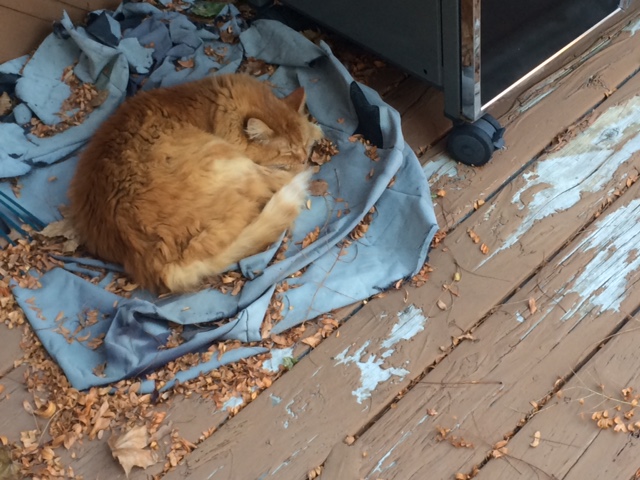
Like many of my boomer cohort, I am in deep denial with respect to my chronological age. In my head, I am in my early forties, officially grownup but still able to stay out way too late on a school night without dire consequences. The money the government sends me every month tells a different story. Which probably explains something that’s happened lately.
Let me explain. I have a subscription to The New Yorker. I like The New Yorker because of the cartoons (of course) and because there is lots to read (although sometimes it leans a little too far into U.S.-centric topics like heat waves in Portland and the school shooting du jour). There is so much to read that frequently I don’t make my way through one week’s offering before the next arrives. This isn’t much of a problem because I can leave them in a precariously tall pile on an end table at the cottage and graze through them on a rainy day.
However, The New Yorker has recently added a new feature: a crossword puzzle on the page after the cartoon caption contest. I don’t remember the exact moment when I picked up a pen (Not a pencil. I do have some semblance of dignity) and began to idly fill in the answers to clues. The first time, it took me about an hour to finish the whole thing. Maybe not completely correctly, but there was a letter in each square that required one. A sense of satisfaction ensued.
Unlike the retirement pastimes that have stayed staidly the same over the decades (golf, line dancing, bridge, macrame, pottery, etc.), I’ve discovered crossword puzzles have evolved sufficiently since my parents’ generation to shed their geriatric stodge. Gone are the days of needing to know the word for the symbol used for Chinese currency (the renminbi, by the way) or Napoleon’s exile locale. Today’s word puzzles are now firmly rooted in 21st century concerns. Like this clue: “word loosely rhymed with ‘crazy’ and ‘chase me’ in Carly Rae Jepson song.” Or this one: “It may have a Bluetooth enabled refrigerator.” Or even this one: “Subreddit where posters ask whether they acted appropriately in a given situation.”
I have actually seen the latter more than a few times, which either points to a lack of imagination on the part of the crossword inventors involved (officially called cruciverbalists in case you were wondering) or they derive lots of glee by including the word “asshole” in their grids. And in that case, more power to them. Otherwise, how would I know to refer to Hamilton as a hiphopera or learn that in the U.K, graphic horror films are referred to as “video nasties”?
After I began to shave minutes off my average completion time, I wondered if there was money to be made in being a crossword prodigy. Mr. Google told me there’s an American Crossword Puzzle Tournament every year. The grand prize is $3,000 U.S. (easily $100,000 Canadian these days). It has the following age categories: juniors (25 and under), fifties (50 to 59), sixties (60 to 69), seventies (70 to 79), and seniors (80 plus). While I am relieved not to be classified as a senior, there’s something a little disconcerting about these classifications. Unless you’re under 25 and probably trying to be ironic, you must be in your fifties to even be allowed to participate. This corroborated my suspicion. You need to be old to be a crossword person. And I am so not old.
Then I noticed a subtitle at the top of The New Yorker crossword page. It said A beginner-friendly puzzle, which implies that even beginners are supposed to know the name of the “Puccini opera whose title character is an opera singer.” My visions of bagging big bucks at crossword contests crumbled. But please do your part to help me out. If I start mentioning going to the bingo hall or wanting to start playing pickle ball, you know what to do. Stage an intervention. Immediately.

So…when do you want to go line dancing? We could make it a Mrs. Robinson type event since my “in-my-head” age is early twenties.
BAH HA HA HA HA